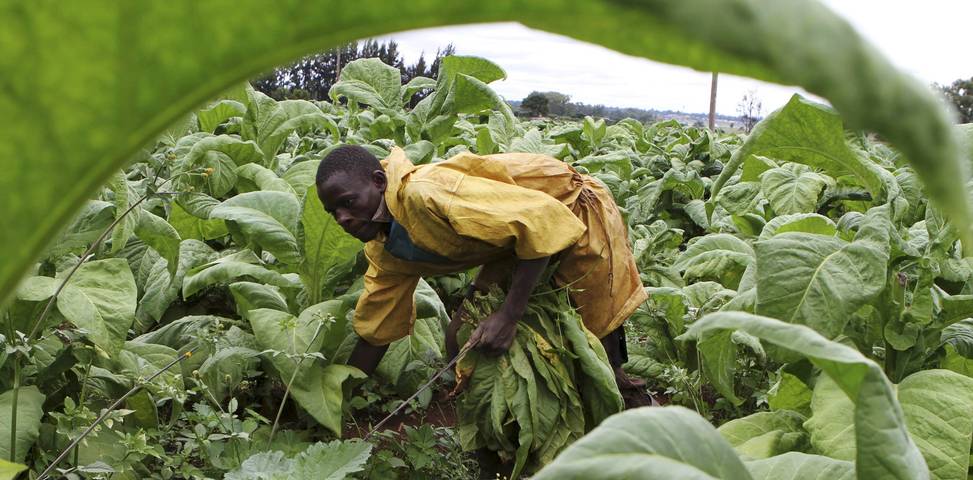
The ManicaPost

THE tobacco growing season started on September 1, 2017 — with at least 2 300 hectares having been planted to date in Manicaland
The hectarage is expected to hit 23 000ha, up from 15 000 planted last season given a significant rise in registrants as many now see it as a viable means to make an honest living and support their families. The tobacco cycle started in June when farmers commenced preparing nurseries, with September marking the transplanting by growers who irrigate their crop. The marketing season swings between February and April.
With the global supply on an upward swirl, emphasis should always be on production of middle to upper good quality leaf grades. Flooding the market with inferior or lower grades leaf weakens marketability. Upper good quality leaf grades are in high demand and attract higher prices than lower grades. Our major competitor is Brazil, which is known for producing a fairly good crop, and we cannot slacken.
In 2000, Zimbabwe reached its peak of tobacco production at 237 million, accounting for a third of all foreign currency earnings, along with gold and other mineral commodities. That can also be surpassed at the back of contract farming, which continues to ameliorate this key sector. Farmers have been unable to access funding from the banks at the levels they would have required because the farms they were allocated during the land reform are still to be acceptable collateral.
Even in cases where farmers have been lucky to access the funding, the interest rates accruing on their loans make agriculture unviable. For indigenous farmers keen on venturing into commercial agriculture, contract farming remains the only viable alternative. The Meteorological Services Department (MSD) has predicted normal to above normal rains, and if we get a favourable rainfall, then, the 93 795 registered growers, of which 14 012 are in Manicaland, should give their all in tobacco production.
Rainfall is the major determinant of a successful the agricultural season in Zimbabwe, and once the heavens prove generous, everything else should add up. Tobacco cannot be left to chance as it is one of the biggest earners of foreign currency in the country. No wonder why farmers are expecting the highest level of export incentive given that they are the single highest generators of foreign currency and employment in the country.
In 2014, tobacco export earnings raked in $772,6 million, rising to $855 million in 2015. It further grew to $933,3 million in 2016 and it is projected to grow to $980 million by end of 2017. The Tobacco Industry Marketing Board (TIMB) AGRITEX and farmers’ organisations have a vital role to play and ensure that productivity of tobacco is raised to maintain its profitability in the face of rising input costs and global competition.
This should be done through intensive promotion of extension services to all tobacco growing communities in Manicaland. That is, much focus should be on A1 and communal areas, where the majority of the registrants are resources and technically poor when compared to A2. Manicaland has 6 780 growers under A1 5 493 under communal and 979 under A2, and this should be done to ensure that growers, new and old ones, strictly observe recommended husbandry practices.
There is also need for research programmes on more effective curing methods; effective and improved methods of constructing barns; mechanical devices to minimise labour constraints which is one of the serious problems affecting tobacco productivity in the country as well as costs and benefits of present emphasis on quality and increased productivity in food crop production.
F armers need to be constantly educated on various key steps required to ensure a successful tobacco season for which adequate preparation and strict adherence to good agronomic practices cannot be underestimated. Care should be taken during establishment of seedbeds as pests and diseases initiated at this stage compromise quality and yield.
Growers should be able to control pests and diseases during the seedbed stage to promote growth of healthy plants. Chemicals and fertilisers should be applied correctly. Growers should ensure that their plants have optimum amounts as too much or too little compromise both yield and quality.



